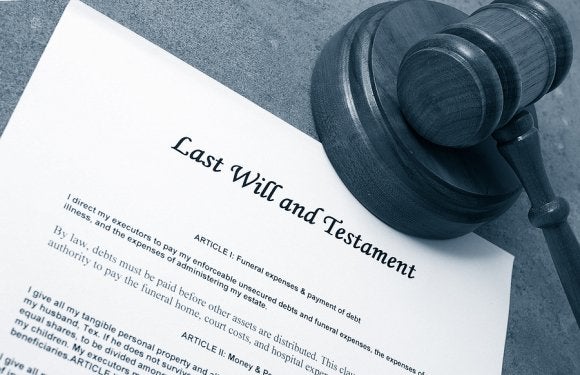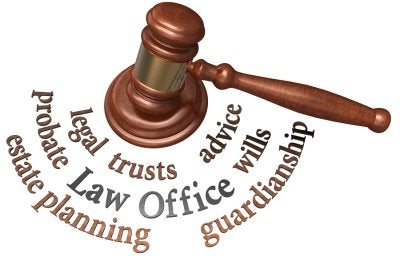-
Instances When Probate Litigation May Be Required
After a death, matters pertaining to the decedent’s debts and assets are resolved through the probate process. In many cases, probate is straightforward and is easily settled. However, sometimes probate litigation may be necessary to resolve claims. It’s always a good idea to retain the services of a lawyer when dealing with probate court in Conroe, TX. A probate lawyer can help you in the event that probate litigation is needed, such as if you believe it necessary to authenticate a will. Your lawyer might contest a will if you believe that the document was not drafted properly or the signature may not be valid.
It’s not uncommon for the terms of a decedent’s will to become a source of disagreement among the heirs. You’ll need the services of a skilled probate attorney in the event that you need to dispute the will or if another heir has disputed the will. Another reason why probate litigation may be necessary is if a loved one dies intestate (without a last will and testament). In these cases, an attorney can facilitate the process of determining the rightful heirs.

-
Probate in Texas: Understanding the Process
Probate is the process of recognizing a death and validating a will for the purpose of administering the decedent’s estate. A decedent’s estate will go through probate regardless of whether an individual had a legal will or died intestate (without a will). After a loved one passes, hiring a probate lawyer can be immensely helpful. A probate attorney in The Woodlands can ensure that the requirements of the Texas Probate Code are met and that probate proceeds as efficiently as possible. The lawyer can also help the family understand what to expect from each step of the probate process.

Waiting Period
The first step your lawyer will take in most probate cases is to file the application and the original of the will at the courthouse. Then, there is a mandatory waiting period, which begins once the application is filed.Probate Hearing
After the waiting period, the court may schedule a probate hearing or your attorney may schedule it. Probate hearings are usually held in the courtroom, however, sometimes they take place in the judge’s office. At the probate hearing, the judge will recognize the death of the decedent, determine that the court has jurisdiction, determine that the executor is qualified, and recognize the validity of the will . The lawyer states certain facts about the decedent to a witness, who is then required to confirm the truth of the facts. Thereafter, the judge may issue an order that admits the will to probate.Estate Administration
After the probate hearing, the executor begins administering the estate. He or she must sign an Oath, which is a legal document verifying the executor’s intent to fulfill all necessary duties required by law and the will. Next, the executor usually orders Letters Testamentary. These “Letters” provide the executor with the authority necessary to administer the estate, such as the power to close bank accounts and sell property. The executor must also publicize information about the estate to potential creditors, provide each beneficiary with a copy of the will, and file various documents with the court. These documents typically include an inventory of probate assets, the decedent’s final income tax return, and a document that confirms the publication of notice to the creditors. Finally, the executor will resolve debts and distribute assets. -
When Does Probate Take Place?
When an individual dies, the probate process begins after the executor files the necessary application in probate court. Sometimes, the surviving family members will hire a lawyer to represent them in the probate court in The Woodlands. The executor then proves the validity of the will before the Court. In such cases, it usually takes only a few months to complete the probate process. However, some cases may take longer, particularly if a probate attorney disputes the authenticity of the will or disputes one or more terms of the will.
You can hear more about the probate process by watching this video or consulting your lawyer. This expert explains why probate is necessary and discusses the role of the executor. He also explains which types of assets do not need to go through the probate process.
-
A Look at the Documents You Need for Estate Planning
Estate planning involves the creation of many different documents for avoiding probate in The Woodlands , including living trusts, advanced directives, and powers of attorney. A living trust may be beneficial for managing your assets following death. However, a will may be preferable because it is both simple to create and works well with your power of attorney.
In this video, a will attorney outlines what documents you need for creating a trust and which documents you need for creating a will. As he explains, you need financial powers of attorney to allow someone to manage you assets if you become incapacitated. To obtain powers of attorney, you also need to provide your lawyer with medical directives and a HIPAA release. This allows you to list everyone you want to be able to talk to the doctors in the event you become incapacitated.
-
What Happens During Probate?
The probate process evaluates wills in order to determine their legal validity. This video explains why you may need a probate attorney near The Woodlands if you have a claim in a will.
A will attorney can advocate on your behalf if you are an intended beneficiary of a will. Especially when a person has diverse assets or multiple beneficiaries, claims in his will may lead to the contesting of it. Contesting a will may extend the probate process as well. When you consult a probate lawyer, you can rest assured that your interests are represented during probate so that you can receive any assets designated for you in a timely manner.
-
The Probate Process at a Glance

A probate court in the Woodlands handles the legal process that occurs once someone dies, including appraising the deceased person’s property and distributing property according to the will. Probate usually involves court appearances by a probate lawyer, who receives compensation from estate property. The process begins when the person named as executor to the will, or a person appointed by a judge, files paperwork with the local probate court.
During this time, the executor to the will must find, secure, and manage assets throughout the probate process, which can take several months to a year. Depending on the amount of the deceased’s debts, the executor may talk to a probate attorney about selling the real estate, securities, or property. In most states, family members can ask the court to release short-term funds during the proceedings to pay for necessary expenses. The court can then grant the executor permission to pay the debts and taxes before dividing the remainder according to the will. The last step of the probate process is transferring the property ownership to the new property owners.
RECENT POSTS
categories
- Uncategorized
- Estate Planning
- Probate
- Family Law
- Drafting a Will
- Divorce Lawyer
- Texas Family Law
- Divorce
- Real Estate
- Probate Court
- Child Custody
- Andrew J. Bolton
- Esq.
- Adoption
- Law Office of Andrew J. Bolton
- Wills
- Executor
- Infographic
- Guardianship
- Trusts
- Contested Divorce
- Child Support
- Attorney
- Living Wills
- Contested Will
- Prenuptial
- Probate Bond
- Heir Apparent
- Legacy Contact
- Living Trusts
- legal guardian
- Legal Disputes
- property rules
- Common Law
- Stocks
- Estate Tax
